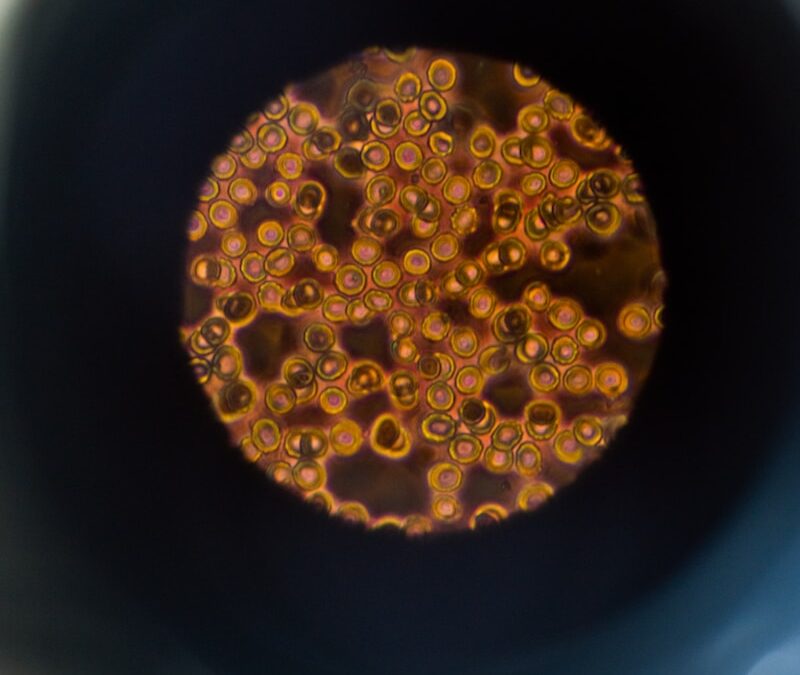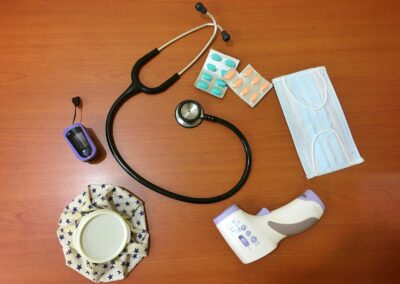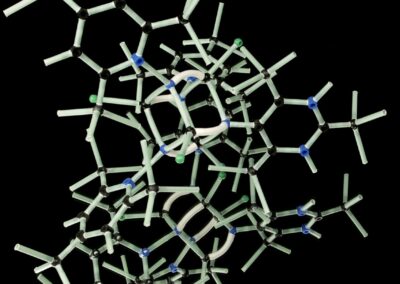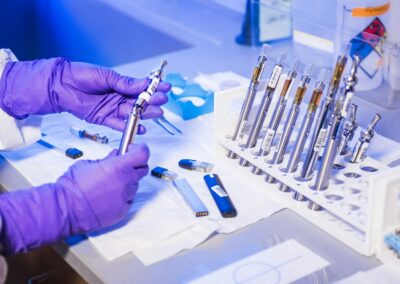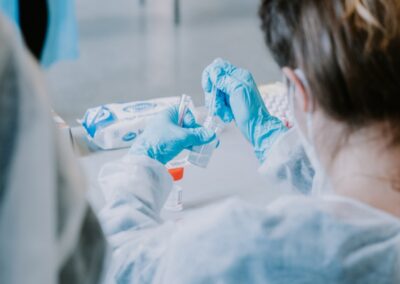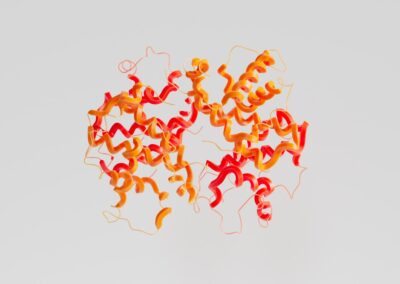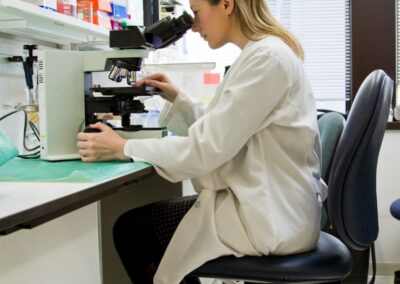Innovative Approaches to Healthcare Transformation
Understanding Genetic Augmentation and Its Medical Potential
The advent of genetic augmentation in cancer therapy represents a significant leap forward in medical science, offering new avenues for treating and potentially curing complex diseases. Genetic augmentation involves the modification of an individual’s genetic material to enhance or repair biological functions. This technology holds tremendous promise, particularly in the field of oncology, where traditional treatments often fall short. In the progressive healthcare environments of Saudi Arabia and the UAE, the integration of genetic augmentation is poised to revolutionize patient care and outcomes.
Genetic augmentation leverages techniques such as CRISPR-Cas9 to edit genes with precision. This allows scientists to target specific genetic mutations responsible for diseases like cancer. By repairing these mutations, genetic augmentation can stop the progression of cancer at its source. For instance, researchers are exploring ways to modify immune cells to better recognize and destroy cancer cells, a method known as CAR-T cell therapy. This approach has shown remarkable success in treating certain types of leukemia and lymphoma, demonstrating the transformative potential of genetic augmentation.
Moreover, genetic augmentation is not limited to single-gene disorders; it can also address multifactorial diseases. Complex diseases like cancer often involve multiple genetic and environmental factors. By employing multi-gene editing techniques, genetic augmentation can tackle these diseases more effectively. In high-tech regions like Dubai, where cutting-edge healthcare solutions are a priority, genetic augmentation can drive significant advancements in treating complex diseases.
Advancements and Applications in Cancer Therapy
The application of genetic augmentation in cancer therapy is already yielding promising results. One of the most notable advancements is in the development of targeted therapies that modify the patient’s own immune cells. CAR-T cell therapy, for example, involves extracting T cells from a patient, genetically modifying them to attack cancer cells, and then reintroducing them into the patient’s body. This personalized approach has shown high efficacy in treating certain blood cancers and is being expanded to solid tumors.
In addition to CAR-T cell therapy, genetic augmentation is also being explored for enhancing traditional cancer treatments. For instance, researchers are investigating ways to make cancer cells more susceptible to chemotherapy and radiation therapy through genetic modifications. By altering the genetic makeup of cancer cells, these therapies can become more effective, leading to better patient outcomes. In innovative markets like Riyadh, the combination of genetic augmentation and conventional treatments can provide a holistic approach to cancer care.
Furthermore, genetic augmentation holds promise for developing preventive strategies against cancer. By identifying individuals with a high genetic predisposition to certain cancers, preventive measures can be taken to modify these genetic risk factors before the disease develops. This proactive approach could significantly reduce cancer incidence rates and improve long-term health outcomes. In regions like the UAE, where preventive healthcare is emphasized, genetic augmentation can play a crucial role in cancer prevention.
Challenges and Ethical Considerations
While the potential of genetic augmentation is immense, it also brings forth several challenges and ethical considerations. One of the primary challenges is ensuring the accuracy and safety of gene-editing techniques. Off-target effects, where unintended genetic changes occur, can pose significant risks. Ensuring precise and targeted genetic modifications is critical for the safety and efficacy of genetic augmentation therapies.
Another challenge is the delivery of genetic modifications to the appropriate cells in the body. Effective delivery systems are essential for the success of genetic augmentation. Researchers are exploring various delivery methods, including viral vectors and nanoparticle systems, to ensure that genetic modifications reach the target cells without causing harm. In technologically advanced regions like Dubai, continuous research and innovation in delivery methods are crucial for overcoming this challenge.
Ethical considerations also play a significant role in the development and application of genetic augmentation. The potential to modify human genes raises questions about the implications for future generations, particularly concerning germline editing, where changes can be passed on to offspring. Establishing robust ethical guidelines and regulatory frameworks is essential to ensure that genetic augmentation is conducted responsibly. In regions like Saudi Arabia and the UAE, fostering ethical research practices and establishing clear regulations are vital for the responsible advancement of genetic augmentation.
Implementing Genetic Augmentation in Healthcare Systems
The successful implementation of genetic augmentation in healthcare systems requires strategic planning, investment, and collaboration among stakeholders. Healthcare providers must invest in the necessary infrastructure and training to integrate genetic augmentation therapies into clinical practice. This includes educating healthcare professionals on the use of genetic technologies, understanding their potential and limitations, and incorporating them into treatment protocols. In regions like Saudi Arabia and the UAE, where healthcare excellence is a strategic priority, investing in genetic augmentation can significantly enhance patient care.
Leadership and management play a critical role in driving the adoption of genetic augmentation in healthcare. Business executives and healthcare administrators must advocate for the benefits of genetic technologies, highlighting their potential to revolutionize medical treatment and improve patient outcomes. In forward-thinking markets like Dubai, strong leadership and vision are essential for fostering innovation and driving the successful implementation of genetic augmentation therapies.
Collaboration between healthcare providers, research institutions, and regulatory bodies is also crucial for advancing genetic augmentation. By working together, stakeholders can develop standards, best practices, and regulatory frameworks that ensure the effective and ethical use of genetic technologies. In dynamic regions like Riyadh, fostering such collaboration can lead to significant advancements in genetic medicine and its applications.
Conclusion
In conclusion, genetic augmentation plays a crucial role in the development of novel therapies for cancer and other complex diseases, offering significant potential for improving patient outcomes and advancing healthcare. By providing precise and efficient gene-editing capabilities, genetic augmentation can target and correct genetic mutations, offering new hope for patients with a wide range of genetic conditions. For regions like Saudi Arabia and the UAE, embracing genetic augmentation can drive innovation, improve patient care, and enhance the overall quality of healthcare. Through strategic investment, collaboration, and a focus on ethical considerations, the promise of genetic augmentation in cancer therapy can be fully realized, paving the way for a new era in genetic medicine.
—
#GeneticAugmentation #CancerTherapy #ComplexDiseases #Biotechnology #ArtificialIntelligence #BusinessSuccess #LeadershipSkills #ManagementSkills #ProjectManagement #SaudiArabia #UAE #Riyadh #Dubai

